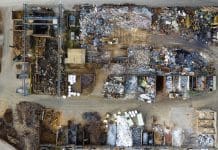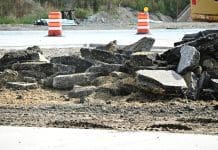Supported by the Construction Leadership Council, the Routemap for Zero Avoidable Waste identifies the action that everyone involved in the construction sector can take to help deliver a lower carbon, more efficient industry
The Routemap for Zero Avoidable Waste has been prepared by the Green Construction Board (GCB), in collaboration with Defra and BEIS. The diversion of waste from landfill forms a significant part in the delivery of Government’s net zero carbon targets.
The Routemap leads on ways of generating less tonnage of material waste from the outset and across the building lifecycle. It sets a pathway to prevent, reuse and recycle more, in line with the waste hierarchy – and eliminate waste to landfill.
The Routemap identifies the action that everyone involved in the construction sector – both public and private – can take to help deliver a lower carbon, more efficient industry.
Delivering reductions in waste will demand change to established ways of working – waste levels in construction have shown virtually no reduction across all sectors for nearly a decade.
This Routemap recognises that actions by all parts of the supply chain are needed to reduce waste and ultimately eliminate all avoidable waste. It adopts the working interpretation of Zero Avoidable Waste in Construction published by the GCB in 2020 and adopts the principles of the waste hierarchy and life cycle assessment.
Time for the supply chain to ‘take action’
Andy Mitchell, co-chair of the CLC, said: The Routemap sets a way forward for the industry to reduce the significant amount of waste it creates, and reduce its impact on the environment.
“It will encourage many in the industry to take a fresh approach to what might be seen as a familiar topic, but it’s one which we need to see some real changes in.
“The CLC supports GCB to help improve our overall resource efficiency, and through the Performance Framework we will be able to demonstrate industry progress on this important topic.”














